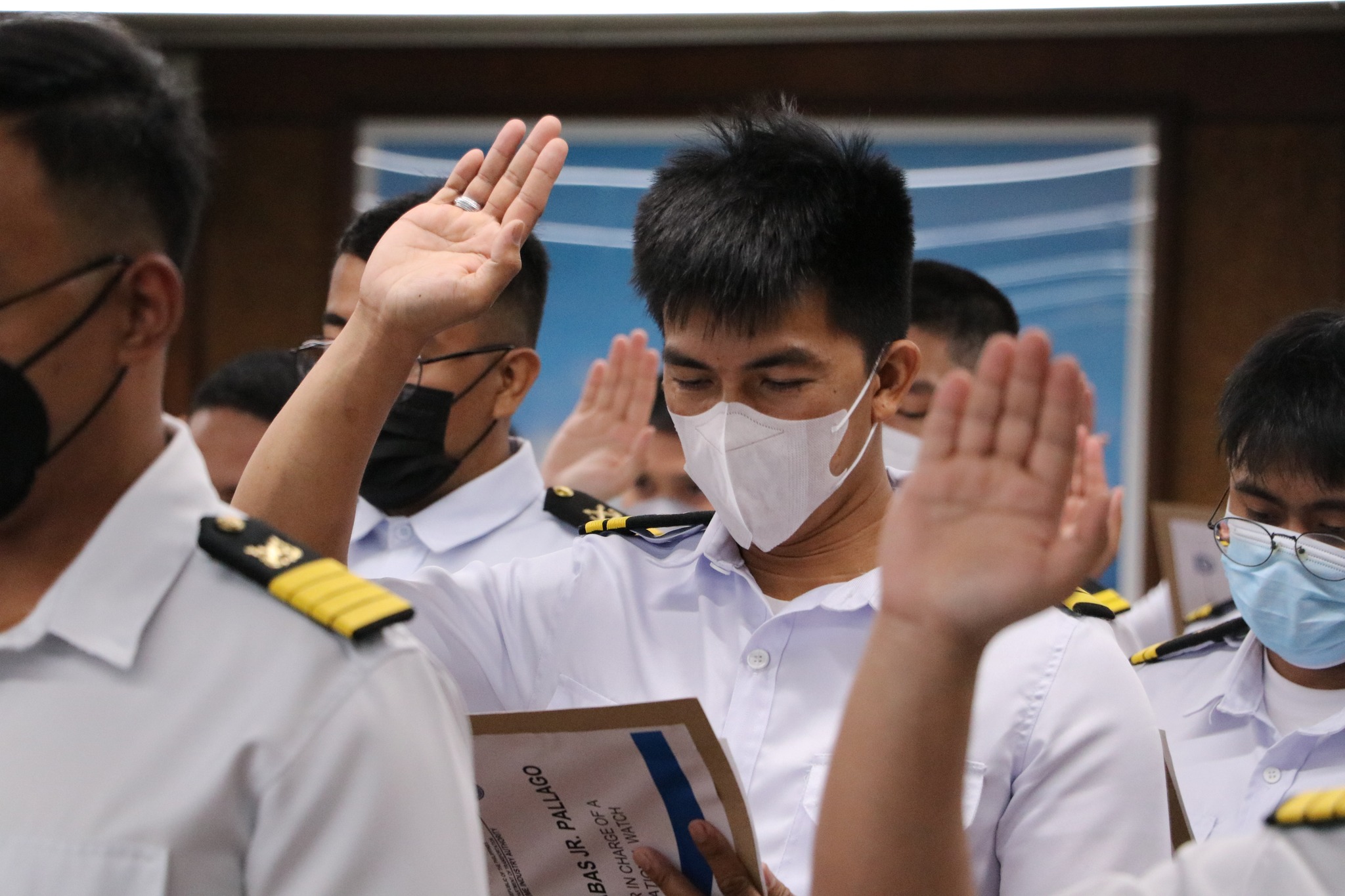Marina appeals for more laws supporting maritime industry's development

The Maritime Industry Authority (Marina) sought the help of lawmakers to create more legislations that would help fast-track the development of the country’s maritime industry.
Luisito Delos Santos, director for Planning and Policy Service of Marina, said this following the enactment of the Magna Carta of Filipino Seafarers on Monday, Sept. 23.
“It would appear, personally for me, we have to create more narratives for the maritime industry because the Marina has been lobbying support for legislative, for our legislative agenda. Siguro mas kailangan pa natin mag-ingay (Perhaps we need to create more noise),” he said.
The Marina, according to Delos Santos, is lobbying for legislations to develop the country’s ship-building capabilities and ship registry system.
In a conference in August last year, the MARINA vowed to lobby for the amendment of Republic Act 9295 or the Domestic Shipping Development Act of 2004; the Shipbuilding Ship Repair Development Act; the Philippine Ship Registry Act; and the Maritime Industry Act to amend Presidential Decree No. 474.
It also targeted to push two national legislations - one on marine pollution convention, and the other one on the Hongkong Convention, which aims to ensure that ships, when being recycled after reaching the end of their operational lives, do not pose any unnecessary risk to human health and safety or to the environment.
In February, President Marcos Jr. approved the Maritime Industry Development Plan (MIDP), a 10-year roadmap which “envisions a strong, reliable and improved Philippine merchant fleet that meets the national and international standards along with the development of a future-ready maritime human capital.”
All of these efforts will help the country to preserve its status as the primary source of competent seafarers around the globe, Delos Santos said.
“We don’t want to lose our status as the number one supplier of seafarers in the world,” he noted.
Meanwhile, Delos Santos said the enactment of Magna Carta of Filipino Seafarers will boost Marina’s efforts in adhering to the International Convention on Standards of Training, Certification and Watchkeeping for Seafarers or the STCW Convention.
Adopted in 1978, the STCW Convention is an international instrument that sets the minimum requirement for training, watchkeeping and certification of seafarers.
“For as long as we ensure that we comply with the provisions of the Convention, we’re assured that our seafarers are safe and for merchant marine officers, that the ships that they command are also safe,” Delos Santos said.
Records from Marina showed that the Philippines has the largest nationality of competent maritime crew serving the international merchant marine fleet, with 385,239 Filipino seafarers deployed overseas in 2022.
For this reason, the Philippines earned the distinction, the “Seafarers of Choice”.
Marina records further revealed that the Philippines is the fifth largest ship-building nation with 47 ships locally constructed for export and 569 for domestic use in 2022.
“It’s really very important that we ensure that we maintain the level of competence of our seafarers because our Filipino seafarers basically move the world. Move the world in the sense that ‘yung universe natin (our universe) is so huge that we get to see our merchant marine officers commanding various ships worldwide,” Delos Santos said.
“So if we fail to meet the standards, malaki po ang repercussions (the repercussions will be big),” he stressed.